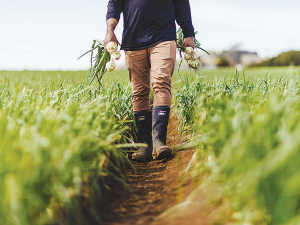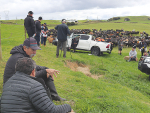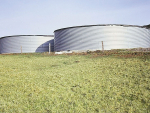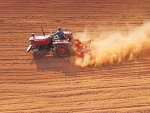He told Dairy News that even a big rise in the GDT index this week would likely take until next year to fully benefit dairy farmers.
“Any improvement is going to be gradual, protracted and fraught with volatility in the market,” he says. “Bluntly speaking, the market is continually being affected by international trade issues leading to more milk coming on the market. These issues include the situation in Ukraine which has led to trade restrictions by Russia, a weaker-than-expected economy in China, and favourable exporting terms and additional milk being exported by EU countries and the United States.”
Love says problems facing the dairy industry are now in the headlights of the Reserve Bank governor Graeme Wheeler. Recently he listed the dairy industry as one of three systemic risks facing New Zealand along with the Auckland housing crisis and the overall global financial situation.
In his ‘stability report’ Wheeler noted global dairy prices fell by 50% last year and the outlook is highly uncertain. Wheeler also noted the high debt levels of a small number of dairy farmers and that many farmers have negative cashflow.
Love says Wheeler’s concern is two-fold: the overall NZ economy which relies on dairy as an export generator, and the effect of the low payout on a wide range of rural businesses.
“It’s a warning shot to financiers and farmers alike, that we can see some tough times ahead in regard to the current cashflows. We are in for a bit of ride but there is no need to panic or be too emotional. It’s a time to look at the story, get a plan together and deliver on that plan, and that will be hard work.”
Love says the present crisis will put a lot of pressure on dairy farmers and their families, and he feels particularly sorry for lower order sharemilkers who will be badly hit.
The high retrospective payments of the 2014-15 season will not be as they were last season and, if anything, the dairy companies will be re-balancing retrospective winter payments following higher payouts forecast earlier in the season.
Despite the industry’s pain, Love hopes there will be some positive learnings out of the adversity. “This will allow farmers to take stock of their businesses and ask whether they have the right stocking rates, whether they are utilising grass to best advantage and whether they have their labour and financial structures right.”
Some dairy farmers tell Dairy News they feel misled by Fonterra which early in the season was suggesting the 2014-15 payout would be about $6.00.
But Love points out that the rules on setting the farmgate milk price are complex and must be based on real data at the time – not on hunches about the future.
“I’m sure Fonterra and other dairy processors in hindsight would love to restart the season. The 2014-15 season highlighted the downside of volatility but if you go back to 2013-14 a similar scenario occurred but it was an upside. If you look at Fonterra’s original payout prediction for 2013-14 they weren’t predicting $8.40.”
Love says while the situation is of great concern, he sees underlying demand for protein, in particular milk products. Other producers are gearing up to meet some of that demand, but the market forces will change again and there will likely be a gradual recovery in farmgate milk payouts.











